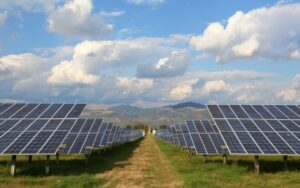Dutch province’s first hydrogen train tender attracts zero bids

No train manufacturers have bid into the Dutch province of Groningen’s first tender for four hydrogen-powered trains.
These trains were meant to run on the non-electrified rail network between port city Delfzijl and the town of Veendam and potentially into the municipality of Leeuwarden.
While an explicit reason for the lack of bids has not been provided, provincial administer Johan Hamster reportedly told the Groningen provincial council that “the requirements we set, for example for the furnishing, lead to quite a lot of investments in what is in principle a small assignment”.
The tender was set to cost around €66m in total for the four trains and a refuelling station, for which the national government would have stumped up €15m and the European Investment Bank €20m.
Groningen had previously trialled a Coradia iLint train manufactured by Alstom prior to launching the tender in November 2022.
Alstom has declined to confirm to Hydrogen Insight how much each of its trains would cost.
Article continues below the advert
Previous government purchases in Germany for Alstom hydrogen-powered trains have ranged from €93m for 14 units to €500m for 27. However, since these tenders included costs beyond the rolling stock, the actual unit cost per train cannot be extrapolated from these figures.
However, Groningen’s provincial government has not abandoned H2 trains, reportedly suggesting that it will consider renting units to run on its railways from 2027. This already represents a delay to its target to start running fuel-cell trains from 2025, which had been included in its 2023 budget.
Hydrogen Insight has reached out to the provincial government, which aims to have only zero-emissions trains operating in Groningen by 2035, to confirm why it is pursuing hydrogen-powered trains over electrifying the networks they would have run on.
Other country’s rail operators have cited H2 trains as an interim solution to meet 2030 climate targets while overhead lines are installed, railway corridors are widened and substations built for electric options.
Updated following response from Alstom on cost of Coradia iLint.






